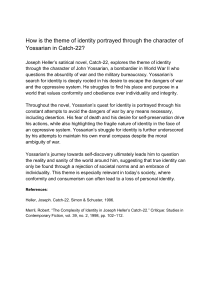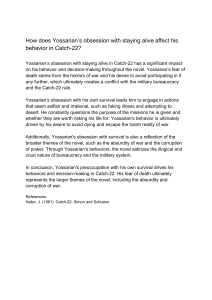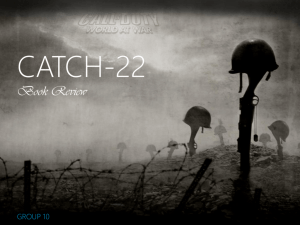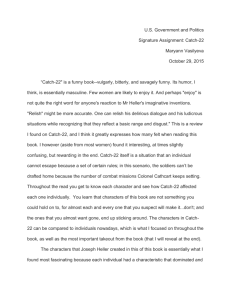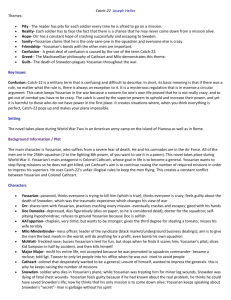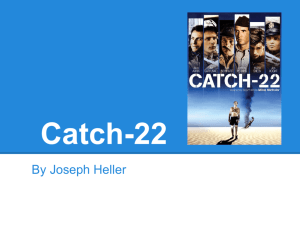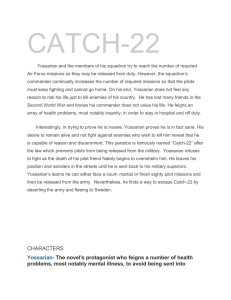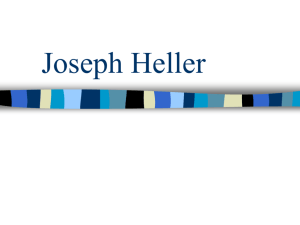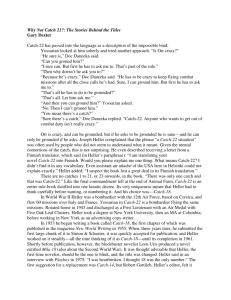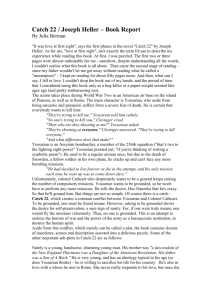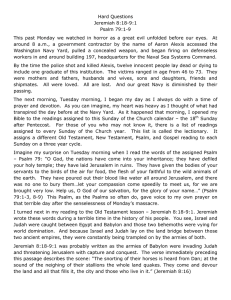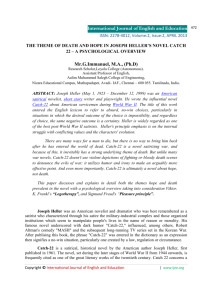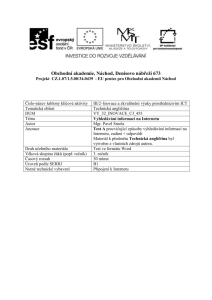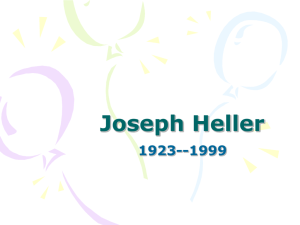Themes, Motifs, and Symbols.doc
advertisement
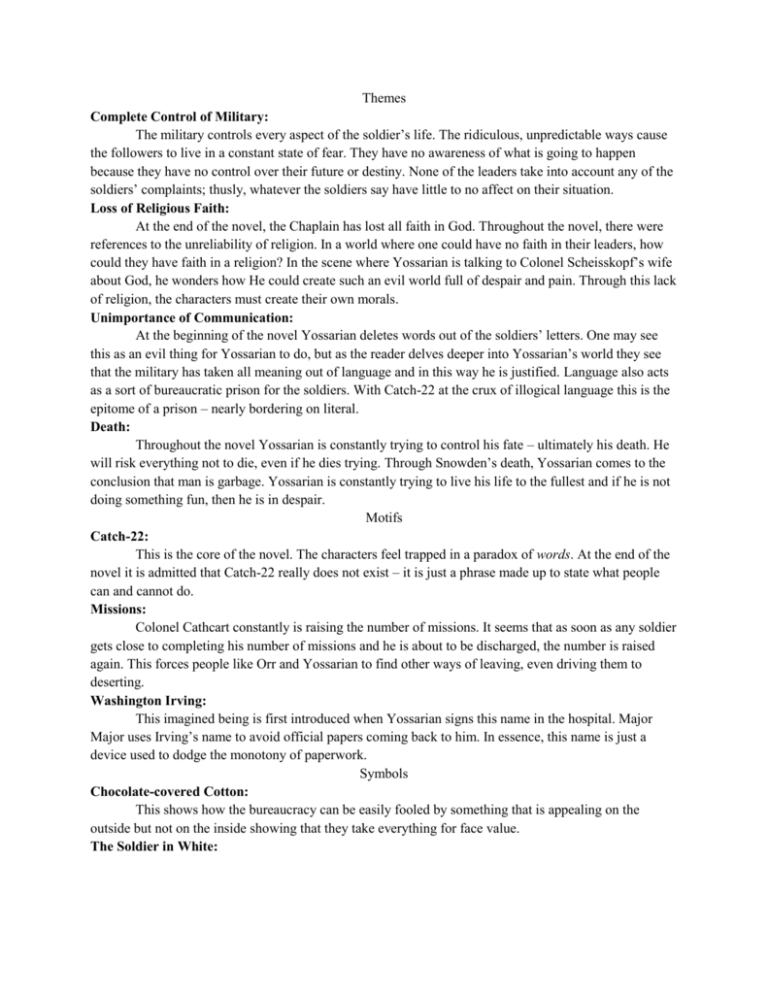
Themes Complete Control of Military: The military controls every aspect of the soldier’s life. The ridiculous, unpredictable ways cause the followers to live in a constant state of fear. They have no awareness of what is going to happen because they have no control over their future or destiny. None of the leaders take into account any of the soldiers’ complaints; thusly, whatever the soldiers say have little to no affect on their situation. Loss of Religious Faith: At the end of the novel, the Chaplain has lost all faith in God. Throughout the novel, there were references to the unreliability of religion. In a world where one could have no faith in their leaders, how could they have faith in a religion? In the scene where Yossarian is talking to Colonel Scheisskopf’s wife about God, he wonders how He could create such an evil world full of despair and pain. Through this lack of religion, the characters must create their own morals. Unimportance of Communication: At the beginning of the novel Yossarian deletes words out of the soldiers’ letters. One may see this as an evil thing for Yossarian to do, but as the reader delves deeper into Yossarian’s world they see that the military has taken all meaning out of language and in this way he is justified. Language also acts as a sort of bureaucratic prison for the soldiers. With Catch-22 at the crux of illogical language this is the epitome of a prison – nearly bordering on literal. Death: Throughout the novel Yossarian is constantly trying to control his fate – ultimately his death. He will risk everything not to die, even if he dies trying. Through Snowden’s death, Yossarian comes to the conclusion that man is garbage. Yossarian is constantly trying to live his life to the fullest and if he is not doing something fun, then he is in despair. Motifs Catch-22: This is the core of the novel. The characters feel trapped in a paradox of words. At the end of the novel it is admitted that Catch-22 really does not exist – it is just a phrase made up to state what people can and cannot do. Missions: Colonel Cathcart constantly is raising the number of missions. It seems that as soon as any soldier gets close to completing his number of missions and he is about to be discharged, the number is raised again. This forces people like Orr and Yossarian to find other ways of leaving, even driving them to deserting. Washington Irving: This imagined being is first introduced when Yossarian signs this name in the hospital. Major Major uses Irving’s name to avoid official papers coming back to him. In essence, this name is just a device used to dodge the monotony of paperwork. Symbols Chocolate-covered Cotton: This shows how the bureaucracy can be easily fooled by something that is appealing on the outside but not on the inside showing that they take everything for face value. The Soldier in White: This shows how the military sees all men as interchangeable, even replaceable, objects. When the Soldier in White is first introduced he has no identity and when he reappears months later, people believe him to be the same man. Aerial Photographs: The infatuation of the bureaucrats with how nice the aerial photographs turn out and how nice the patterns are shows the dehumanization of war.
